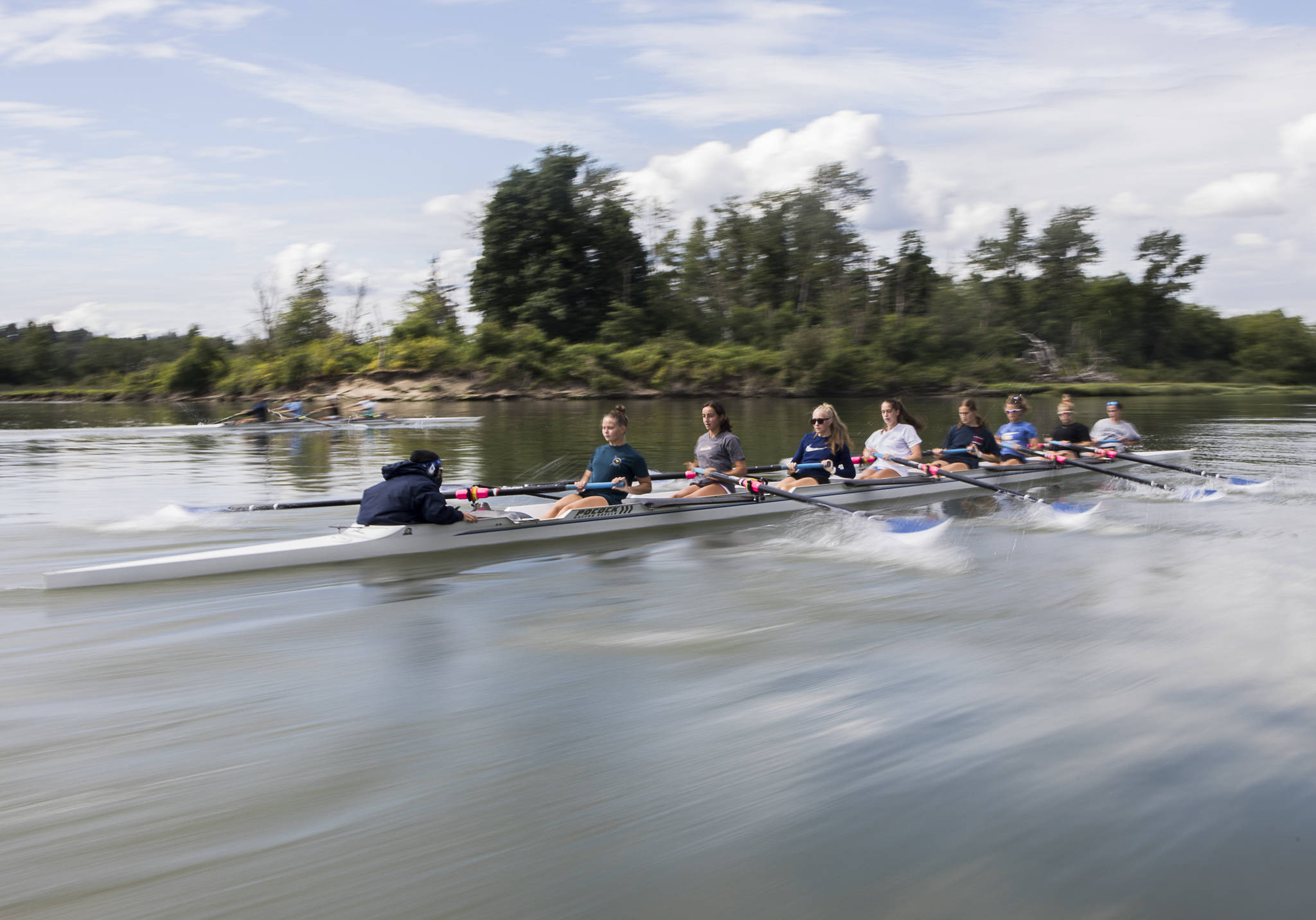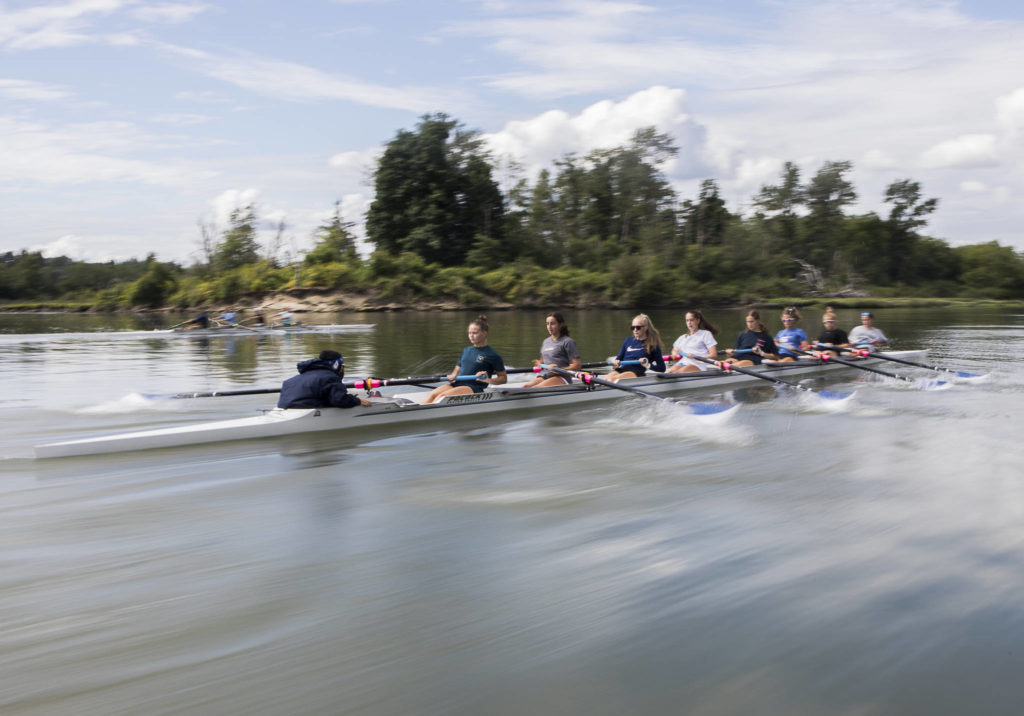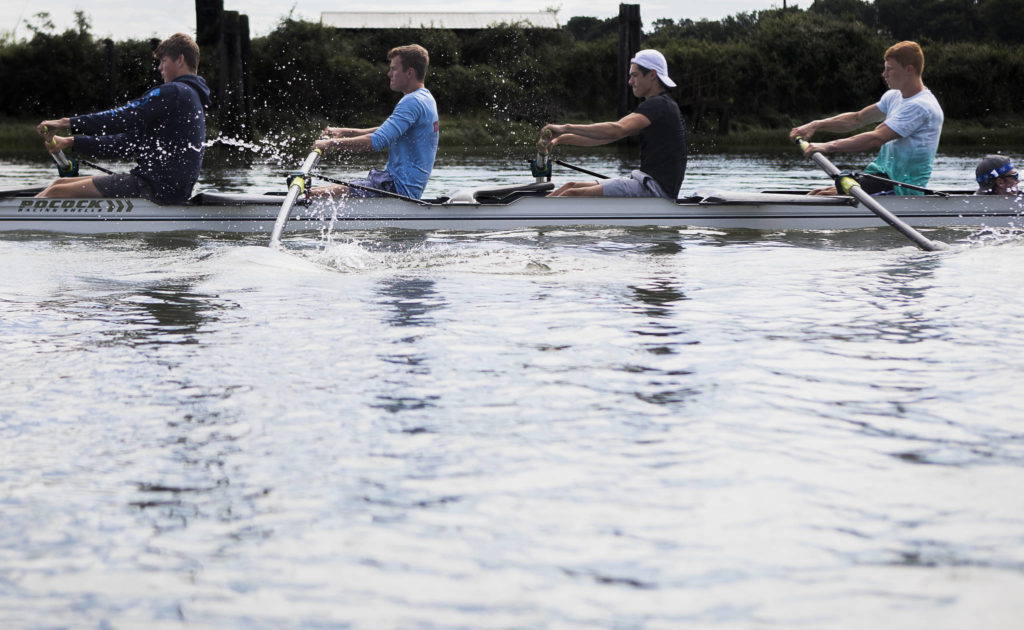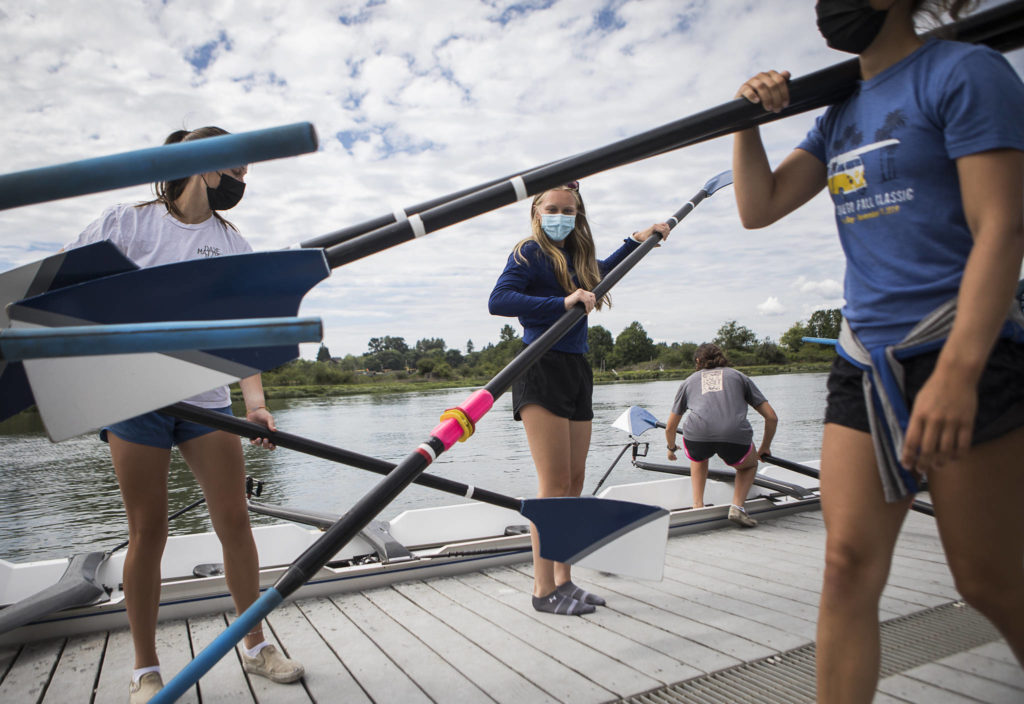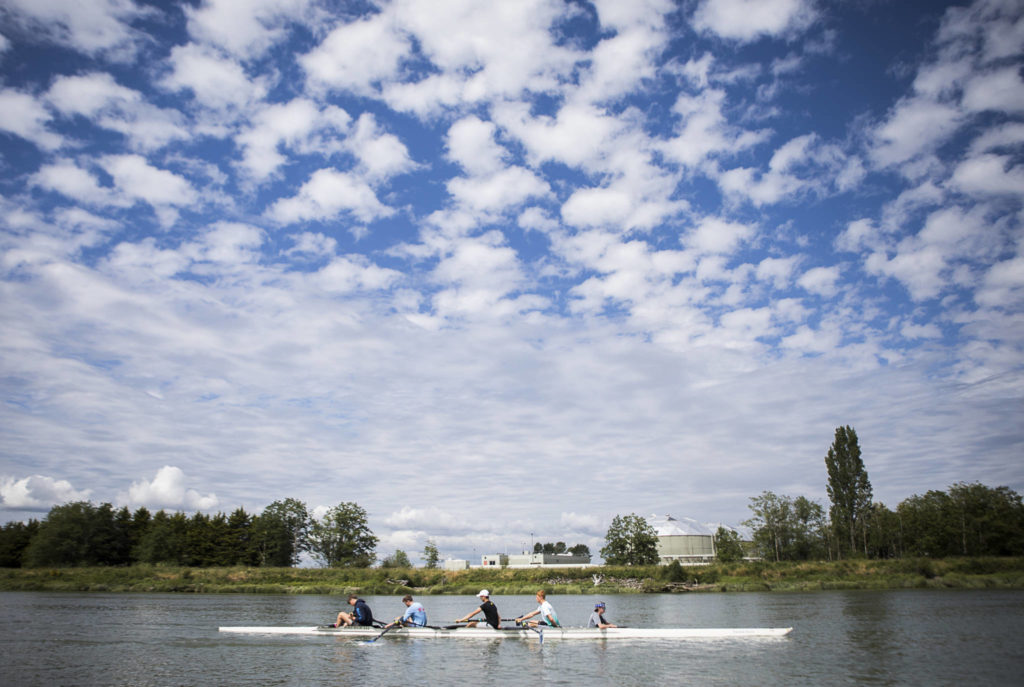The coronavirus pandemic presented a lot of challenges for the Everett Rowing Association.
There were months of at-home training on erg machines. And then, more months of being limited to single-person and two-person boats.
And actual races? Aside from some scrimmages, those have been nonexistent.
But after all the past year’s obstacles, Everett’s rowers finally have a chance to reap the rewards of their work while squaring off against the nation’s best.
Everett Rowing has both a women’s 8+ boat and a men’s 4+ boat set to compete at the USRowing Youth National Regatta, which runs Thursday through Sunday in Sarasota, Florida.
“We’ve put in so much work this last year,” said Ellie Lewis, a member of the women’s 8+ team. “… It’s really exciting just to finally be able to get to this point and be able to see the benefits of all the work.”
Because of the pandemic, USRowing moved to an open-entry format for this year’s youth national regatta, instead of its usual qualification process.
Everett’s women’s 8+ boat consists of coxswain Hannah Swissa, Savannah Cross, Asia Erickson, Taylor Fausey, Lewis, Lucy Nault, Soren Sackett, Makayla Tuley and Isabella Ulloa.
The women’s team is an experienced group that features five high school seniors, including four who are set to continue their rowing careers in college at the Division I level: Erickson (Stetson University), Fausey (Drake University), Lewis (Southern Methodist University) and Ulloa (University of Louisville).
The men’s 4+ boat consists of coxswain Aiden Richer, Ivan Bury, Aiden Hayes, Jake Johansen and Dunn Sackett.
“It’s kind of a culmination of everything,” Everett women’s head coach Brian Wagner said of the opportunity to race at nationals.
The women’s team, in particular, demonstrated considerable perseverance over the past year.
When the pandemic hit last spring and Everett Rowing was forced to temporarily shut down its program, its rowers were confined to training at home on rowing simulators called ergs.
And while many of the rowers slowed their training during that time, a group of four girls — Erickson, Nault, Ulloa and Zoe Whicker — kept training about six days per week at a high intensity.
“I was at a point where I was close to a milestone on our testing, and I really wanted to keep going,” Nault said. “It never really occurred to me to stop.”
Erickson, Nault, Ulloa and Whicker ultimately decided to enter last June’s USRowing Youth Virtual National Championships, which consisted of each rower competing from home on their erg. The quartet took fourth place in the women’s youth 4+/4x/4- weight-adjusted division of the competition.
“It showed them that, hey, something good can come out of this if we just keep going,” Wagner said. “… And some of the other girls were inspired by that and were like, ‘Oh, wow, they did really well. The training is working, and if we just stay with it, then maybe something else will happen.’”
By last summer, Everett Rowing was able to return to the water. But instead of rowing in four-person or eight-person boats, they were limited to one-person single sculls.
“There definitely were moments where it was difficult and discouraging,” Lewis said. “But I think our team has a really good team dynamic in general, and just a really positive and uplifting team culture. … And I think that that’s really something that helped us through all of that.”
The Everett women’s team got another taste of success last October, when its rowers competed in the prestigious Head of the Charles Regatta.
The competition, typically held in Boston, was conducted virtually, with racers using a GPS tracker app on their phones to record their times. Everett’s rowers completed their races in single sculls on the Snohomish River.
Everett finished with six of the top 10 times in the women’s youth participatory water division, and five of the top 13 times in the women’s under-17 participatory water division. Everett’s rowers benefited from a favorable current, but they were disadvantaged by racing in singles and being pitted against teams in doubles, quads and 8s.
“We had a current, so that helps,” Wagner said. “But there’s other people that had currents, and we were beating 8s out there.
“It was kind of another thing that said, ‘Hey, look, if we just keep training, then good things can happen.’ So then we just kept pushing.”
This spring, as pandemic restrictions loosened, Everett Rowing was able to move into four-person and eight-person boats. Everett also was able to schedule dual meets, which gave its teams a chance to test themselves against other clubs.
And now, after training and competing in relative obscurity for more than a year, they get to race on a national stage.
“It really feels like all the hard work from this past year is paying off,” Nault said. “It’s all been leading up to this, and it’s a really exciting feeling. It makes it all worth it.”
One challenge facing Everett at the national regatta is that teams from some parts of the country didn’t have the same degree of pandemic restrictions.
“It’s gonna be a pretty tough road to make the grand final,” Wagner said, “because there are a lot of crews that have been rowing the big boats for quite a while and haven’t had the same restrictions that we’ve had.
“But to be here and to be able to compete is great. It’s been a long road. … For some of (our rowers), they’ve literally been training hard since August of 2019.”
One year ago, some of Everett’s rowers competed in this national championship event from their garage or basement.
Now, they get to race at Nathan Benderson Park — home of the 2017 World Rowing Championships.
“We’re all super excited, super pumped up to get going,” Erickson said. “We honestly cannot wait.”
Talk to us
> Give us your news tips.
> Send us a letter to the editor.
> More Herald contact information.
